


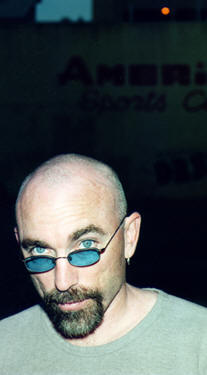
By Omar P.L. Moore
The actor and director, who has received accolades for his amazing portrayal of
a controversial character in Todd Field's critically-lauded "Little Children"
very generously gave his time to talk about several things that have deeply
affected him both personally and professionally, some of which helped fuel his
performance as Ronald J. McGorvey in Mr. Field's riveting adult drama, which the
San Francisco Film Critics Circle selected as the best film of 2006.
Jackie was candid and revealing about himself as a person and an actor during
the course of our conversation, including his nervous habit and the
dimension of pain, heartbreak and personal loss in his life.
Jackie Earle Haley was a child actor in the 1970's and appeared in such films as
"The Bad News Bears".
He has spent several years since directing television commercials. This year,
2006,
marked his return to work as an actor on the big screen (in "All The King's Men"
and "Little Children".)
"Little Children", a New Line Cinema release, expanded its release in various
areas of the United States and Canada, including Northern California's Bay Area
late last week. The film recently opened in Israel and starts moving into
other countries early in 2007.
OM: Congratulations on the accolades that you're receiving for this
role. It is a profound piece of work. I don't think words can
describe just what you've done with this performance of Ronnie McGorvey.
JEH: Well thanks dude.
OM: You have an illustrious resume of directing
and a lot of experience on [American] television in your infancy, as it were.
How difficult was it to make the transition -- prior to ["Little Children" and
"All The King's Men"] -- you haven't had a lot of big screen acting
performances, at least for quite some time. So what was it like to jump
into a role as complex as the one that Todd Field drew up for you?
JEH: Well, you know, it was -- playing
Ronnie was incredibly challenging. When I made the decision to leave show
business about fifteen years ago, it was out of necessity. I was no longer
able to make a living. I was getting behind on bills. It was time to
move on to kind of seek opportunity elsewhere. And during that fifteen
years -- no acting -- after struggling for a while I started to get into
corporate communication and directing corporate videos. From there I got
into directing infomercials. From there I got into directing television
commercials. And television commercials are kind of more like mini-movies,
so I really fell in love with that format and was able to work with actors and
to direct actors. And then I think it kind of kept that creative flow
alive?
OM: Yes.
JEH: But I think still, acting on a personal level
I was obviously still pretty rusty. I hadn't exercised those muscles in
quite some time. I remember one time meeting a friend of mine at this
acting class in town and I figured, "you know, it's been ten years since I've
done any acting, why don't I pop into my friend's class, do a scene study, and
that will make me remember what it feels like to be an actor and that will
probably help me to direct actors better?" So I popped in there and did
the scene from "Quiz Show" [when John Turturro's character is told by the show
producer to purposely lose the quiz contest he's in the midst of playing].
I was playing the producer and there was this other student in the class playing
the John Turturro character . . . We started to do the scene. Now bear in
mind, it's been really ten years since I've done a scene . . . and I swear
to God, I felt something bubble from the tip of my toes all the way up and out.
Up through my whole body and out through my head. And what I was feeling
was -- and this may sound strange, but it was this cathartic feeling I was
feeling that's the craft of acting, and it was weird. And it had been
dormant so long that I was doing this scene and I just -- and I released it.
And after doing that scene I walked out of there going, "wow . . . I'm an
actor." That's part of who I am -- and I realized that at that point --
and this was about six or seven years ago? I realized at that point that I
need to act -- every now and then, just to let it out . . . so that was a real
interesting cathartic moment. And then Steve Zaillian [director of "All
The King's Men"] called. And I got the opportunity to go work on a movie
again. Especially a movie of that caliber with such amazingly talented
people [the director and the cast] . . . working with Sean [Penn] was like
going to acting college. He was absolutely amazing to watch and learn from
. . . I think it was very helpful to be able to get to go do that work prior to
doing the role of Ronnie.
[Editor's note: Jackie was able to get an agent
and manager following "All The Kings Men." ]
JEH: They [agent and manager] were
incredibly conducive in putting me in front of Todd. When Todd hired me to
play the role of Ronnie that's when I really started to dive in and try to
discover the character and who he is and what he's about. He's such a
challenging character, it's a challenging role. And I really had to dig
pretty deep.
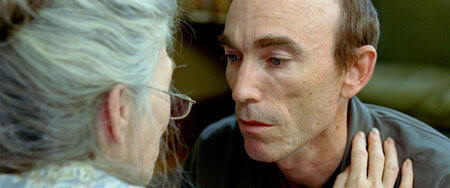 Jackie Earle Haley as Ronnie, in Todd Field's "Little
Children". The New Line Cinema film, which recently expanded its release
in the U.S., including in the Northern California Bay Area, also features
Phyllis Somerville (pictured here) as Ronnie's mother, as well as Kate Winslet,
Jennifer Connelly, Patrick Wilson and Noah Emmerich. (Photo: New Line
Cinema)
Jackie Earle Haley as Ronnie, in Todd Field's "Little
Children". The New Line Cinema film, which recently expanded its release
in the U.S., including in the Northern California Bay Area, also features
Phyllis Somerville (pictured here) as Ronnie's mother, as well as Kate Winslet,
Jennifer Connelly, Patrick Wilson and Noah Emmerich. (Photo: New Line
Cinema)
OM: It's an
incredibly brave performance . . . obviously the character is a very complex
character and I want you to talk about the process of how you had to dig deep
and what you had to do, the emotions, all these things . . . as you were going
through the role of Ronnie.
JEH: There's so much about this character
that I'll never understand. And there's so much about him that I do
understand, that what I really needed to do is stop, sit there and try to look
at this character's truths. But in order to do that I had to look at my
own truth and just try to find common ground between these two characters -- me,
and him -- and I think an actor has to always kind of look into himself.
And sometimes there's more answers there and sometimes there's not.
Sometimes you have to find the answers in fiction. And in this case, it's
a bit of both. In looking inside and trying to find what I had in common
with Ronnie -- Ronnie is -- one messed up kid. He's incredibly alone.
I think he suffers from an incredible deal of low self-esteem. And
insecurity. And he's so uncomfortable in his own skin. He feels so
inferior. The things that he suffers from he suffers in such a degree that
he needs to escape. And obsessive behavior, to my understanding . . . when
you suffer from, again, low self-esteem and things like that, there's a point
that you need to escape, you need to get out of your own skin, you need to stop
it, you need to make it go away. You need to do something so you don't
have to focus on your own life. When you've got an impulse that can
grab your attention and hold it and retain it, and you can obsess on it.
And Ronnie's obsessing on his impulses. He doesn't have to look at
himself. He's effectively escaping. He doesn't have to feel what
he's feeling. He doesn't have to feel that pain. And I can relate to
that. And not with the same impulses. And not with the same degree
of self-loathing. But there have been periods in my life where I have
suffered from insecurity, fear, low self-esteem. And I do have somewhat of
an obsessive make-up. And I found myself obsessing on things so that I
wouldn't have to deal with my insecurities and my fears.
Now some of those things for me have been alcohol, cigarettes, relationships.
And one of the things that is so completely different from Ronnie but yet
somehow really -- I found that it applied -- I'm a nail-biter. And I'm 45
years old. And for some reason I cannot -- no matter how hard I try -- I
cannot stop biting my nails. Now, I have [had some] great success where
somehow I've managed to stop for two years . . . and then somehow I bite that
first nail, and it starts this chain reaction, where two months later I've got
ten nails all the way down to the quick.
OM: Uh-huh.
![Outtakes: With the exception of May (Phyllis Somerville),
"Ronnie's the only [character in the film] who really knows who he is. He would do anything to change. He doesn't like being who he is](jehfocuspf_files/image004.gif)

JEH: Over the years, I'd ask myself, "why do I bite my nails?" And I
finally said, "why don't you ask yourself when you catch your hand in your mouth
and you're biting your nails?, ask yourself 'what are you thinking right now?'"
So I did that for a period of probably over a year . . . and what I found myself
thinking every single time had to do with insecurity, fear, self-esteem issues
to some degree. I mean -- and it could be just something small like, "hmm,
I wonder if I'm gonna get that job?, I wonder if those people are gonna call me
back? I hope I did that commercial right." You know what I mean?
OM: Yes, I do.
JEH: Just little things like
that -- something like that was going through my mind as I was biting my nails.
The other obsessive, just OCD [obsessive compulsive disorder] aspect of it is
that it's amazing how I could catch myself biting my nails . . . with total
conviction I'd say [to myself] "you're gonna just stop right now!"
So I would stop and I'd start thinking about whatever else I'd be back to doing.
Three minutes later I would find my hand in my mouth.
OM: Wow.
JEH: I didn't tell myself to put
it there -- it just did it all by itself. And so that's one aspect I had
to look in myself and try to reconcile myself with Ronnie, and I think there's
definitely a parallel there that I found very helpful in dealing with that
aspect of Ronnie. The other aspects of Ronnie which are more important
where I sat down and started talking to Todd at length about this
character -- I cannot tell you how many face-to-face meetings and phone
conversations that Todd and I had just discussing this character. It
became apparent to us that the most important aspect of this character was the
relationship with his mom. Ronnie, again, a very self-loathing, very alone
individual, has one person in his life. Just one. And that's
his mom [May, played by Phyllis Somerville]. I don't know about you, but
I've got a special relationship with my mother. I think most people do.
Moms are -- it's a one-of-a-kind relationship.
OM: That's right.

Mother and son: Phyllis Somerville (as May) and Jackie Earle Haley (as Ronnie)
in "Little Children". (Photo: Todd Field)
JEH: Their unconditional love
and support and care and concern is unmatched by anyone else in your life -- at
least for me. You know, there's other special relationships, but that one
is just -- that maternal love is something that is so unique and so special that
I found myself focusing on my relationship with my mom. I found myself
during the process of making this movie, going out of my way to call my mom and
to force myself into that relationship with her. To just acknowledge, to
enjoy, to experience, to live, to live that love and to think about it . . . to
penetrate it into my psyche so that I could focus on it for Ronnie and apply it
to Ronnie. And I also found it important -- there's so many different ways
that I was using my own life here for Ronnie's . . . [t]he other one was to
focus on my brother's relationship with my mom. My brother was obsessed on
drugs. And he became a heroin addict in his early twenties.
Somewhere along the line Tru suffered from a great deal of low self-esteem.
OM: Okay.



JEH: From insecurities, fear,
oppression. And somewhere along the line he found heroin. And that
just -- it really did it to him. And over the years, I watched my brother
go from a guy that owned this beautiful van camper . . . the air-conditioning
mechanic, rocket guy . . . just really had his shit together -- slide into this
heroin addiction that I just watched everything get ripped away from him -- his
job, his van, his place to live. And this went on for a decade where he'd,
he started stealing stuff from me and my siblings and my mom so that he'd get
his next fix. There were periods of time in there where me and my siblings
at family gatherings really preferred that he wasn't there, so we wouldn't
have to keep an eye our stuff. During all of this time, my mother was
always there for him.
OM: Wow.
JEH: When he didn't have a place to live she would let him back into the
house. She would love him and nourish him and encourage him and give him
loving speech after loving speech and pump him up to want to quit [drugs], to
change his life and do better . . . do his laundry, and just love him. And
there was many times where I moved back in that house, and many times when he
was out there and he was all by himself. And he was alone. And . . .
when he needed something -- or maybe just a meal -- she was there for him.
When I was 29 I was driving, I was getting ready to go golfing with some friends
of mine, and . . . [I get a phone call] and I hear this voice that I don't even
recognize. It is hysterical . . . and you can tell that whoever's leaving
a message thinks they're saying words, but it's all unintelligible.
OM: Wow.
JEH: I started listening closer . . . and I started to realize, 'holy
Christ, it's my mom and I listen a little closer and I only make out two words
in this 45-second hysterical diatribe and it's: "Tru died."
OM: Wow.
JEH: My brother's name is Tru. At the age of 34 he overdosed, and
died.
OM: I'm really very sorry. I really am.
JEH: Well, thanks. It's been a while. It's been fifteen years.
And so I cannot tell you how after all these years -- especially now too after
really spending time and opening this box and looking really, really deep inside
-- I cannot tell you how grateful I am to my mom, knowing that through
all that pain and self-loathing and fear and insecurity and oppression and
battle with heroin addiction -- on and off -- oh, I cannot tell you how much
I love my mom -- for just being there for him. And then at the
time, I wondered, "well, why is she enabling him? Is she holding him up?
Is she keeping him from hitting his bottom?" [There are] different schools
of thought on what is the proper thing to do with somebody that's a drug addict.
And now all that school of thought is just a bunch of bullshit, 'cause he's gone
and he ain't coming back.
OM: Right.

!["When they say 'wrap', I'm pretty good at just walking away and being able to live with whatever colliding emotions [I'm] having . . .](jehfocuspf_files/image010.gif)
![I know they'll drift away and I'll slowly get back to myself." [When you take a break between scenes], "you've got all these
conflicting things running around](jehfocuspf_files/image011.gif)

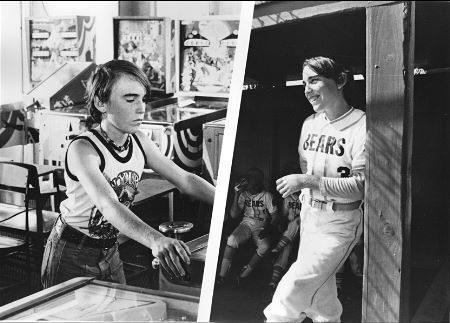
As a child actor: Jackie Earle Haley as Kelly Leak, pictured in
these two photos from "The Bad News Bears" (1976). Jackie also starred as
Dave in "Losin' It" (1983), with a budding actor named Tom Cruise.
(Photos: Paramount Pictures)
JEH: So now I can dismiss all that and hold on to
what is important. And what is important was that my mom loved him
unconditionally. And I know that during that struggle, during that tough
time in his life, that there was that one person, man, that was always
there for him. And that's huge. That's huge for me. And it
was huge for Ronnie, you know? It was really huge for Ronnie . . . as vile
and as fucked up as this guy is . . . he had that special person. Now
here's another aspect to the character . . . my dad was one of the more
important aspects. Me and my dad were more like buddies. Over the
years [we] had already written three screenplays together. You've got to
get along with somebody to sit down for three months and write a screenplay!
I was super-unfortunate to lose him at an early age. He was 68. He
died of lung cancer. And that loss was just pretty devastating.
Another thing that me and my dad had too that really brought us together was he
was an actor. When I was growing up, he was the guy that brought me to all
my auditions. He's the guy that went to Houston with me. He's the
guy that went to Japan, and Indiana [for the "Bad News Bears" films.]
He's the guy that was with me for the two or three months when we were making
these movies. Even though I'm one of five siblings . . . out of those five
siblings, you know, I'm squarely tight with my dad because of our
common show-biz stuff. So losing him was just -- and still is -- an
incredible hole that's been left in my gut.
What I did on this movie ["Little Children"] is I brought my dad with me.
I brought some photographs of him on my iPod. And I talk to him all the
time. In my dressing room. On the set. And I specifically
would take him on the set with me . . . when I was dealing with the scenes.
[With some of the most critical moments in "Little Children"] I had to focus on
the loss and tap into that and let those emotions resurface so that I could . .
. give them to Ronnie. So that Ronnie could feel what he could feel [at
the most difficult moments]. For me, it was both beautiful and painful to
relive a lot of those emotional experiences with my dad. It was very
bitter-sweet, but I've got to tell you that my dad was kind of an uncle. I
know this sounds weird and kind of like bullshit, but I'm very grateful to my
dad . . . he just guided me through that whole process [of playing Ronnie in
"Little Children".] It was an amazing experience. As an actor I just
really drew off of every possible thing that I could draw from and apply
it.


Jackie said that the heavier scenes in "Little Children"
were shot over and over and over, and that on his very first day on the set he
was immediately thrust into doing a strong scene [with Jane Adams] where Ronnie
is driving around. Jackie acknowledged that it was sometimes difficult to
remain in his character's emotional state, particularly for one demanding scene
in the film that took a week to shoot. The second scene he did was the
final scene involving Ronnie in the film. During the course of the
production of Todd Field's "Little Children" he was on the set for about eight
weeks, on and off. Jackie added that since both "All The King's Men" and
"Little Children" that he has received a few offers that he and his agent and
manager are looking at. He admitted that he was "nervous" and that it was
"scary, for someone who's been there [the Hollywood film industry] before," and after being out of the motion
picture industry for as long as he had. Jackie also said that it's "twenty
years usually, before a script like that" [with a character like Ronnie] comes
along.
From all indications of his performance in "Little Children", Jackie Earle Haley
could well be rewarded during awards season for undertaking a complex and
arduous journey through the troubled soul that he portrays in Todd Field's film.
As some actors and filmmakers say, however, it is the journey taken that is
the most rewarding, and if one goes by that sentiment, then Jackie Earle Haley
has already been rewarded in abundance.
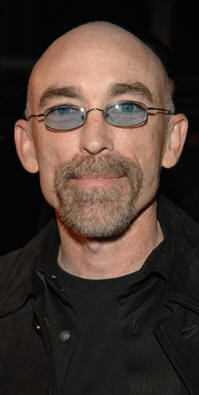
Jackie Earle Haley, seen here at "The Painted Veil" Los
Angeles movie premiere in mid-December 2006. (Photo: Lester Cohen/WireImage)
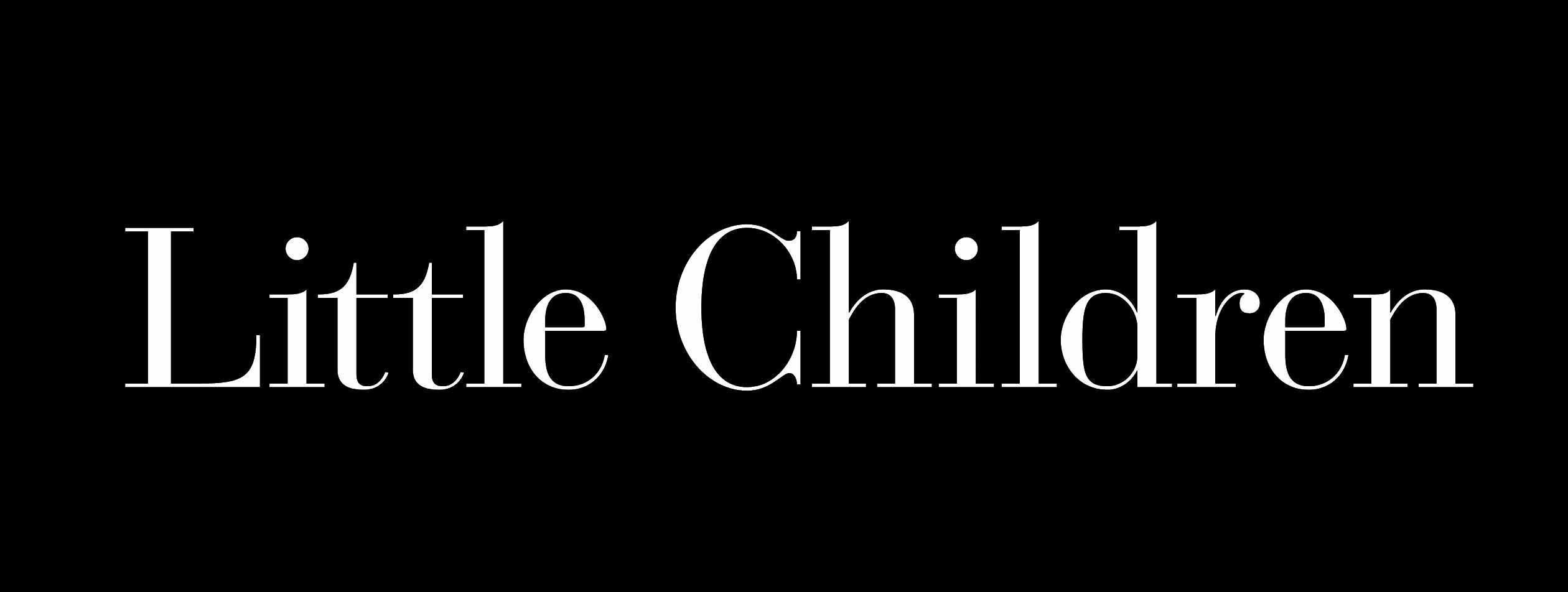
Now playing in select theaters across North America.
The film is expected to expand to overseas
markets such as France, Australia, Turkey and Sweden in January and February
2007.
(Logo: New Line Productions)
Related story:
"Little Children" director Todd Field
Copyright 2006. PopcornReel.com. The Popcorn Reel.
All Rights Reserved.
Jackie Earle Haley interview originally published on December 27, 2006.

 Jackie Earle Haley as Ronnie, in Todd Field's "Little
Children". The New Line Cinema film, which recently expanded its release
in the U.S., including in the Northern California Bay Area, also features
Phyllis Somerville (pictured here) as Ronnie's mother, as well as Kate Winslet,
Jennifer Connelly, Patrick Wilson and Noah Emmerich. (Photo: New Line
Cinema)
Jackie Earle Haley as Ronnie, in Todd Field's "Little
Children". The New Line Cinema film, which recently expanded its release
in the U.S., including in the Northern California Bay Area, also features
Phyllis Somerville (pictured here) as Ronnie's mother, as well as Kate Winslet,
Jennifer Connelly, Patrick Wilson and Noah Emmerich. (Photo: New Line
Cinema)


